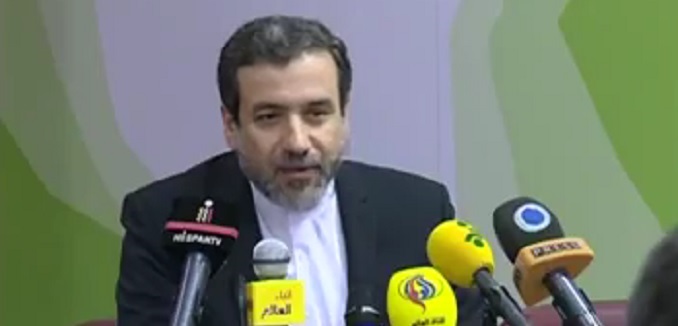There is ‘no end in sight’ for talks aimed at implementing the Geneva interim agreement announced last month between the global P5+1 powers and Iran, according to an Agence France-Presse article that was published last week.
“There are definite differences of opinion on the interpretation (of the Geneva text). Not that I am saying these are insurmountable but both sides are looking to negotiate the most robust deal they can,” one Western diplomat involved in the talks told AFP. “What this means, and this is not a surprise, is that we will not get this resolved by the end of this week…. They are going to have to get together more frequently than they thought.”
Disputes over the meaning of the Geneva language began almost immediately after the deal was announced. Iran broadly accused the United States of mischaracterizing the terms of the agreement, while Iranian President Hassan Rouhani and Foreign Minister Javad Zarif more specifically boasted that Iranian negotiators had maneuvered the West into recognizing that Iran had a right to enrich uranium. Such a concession would run contrary to half a dozen United Nations Security Council resolutions demanding that Iran fully suspend its nuclear program, and U.S. and Britain flatly rejected the characterization. Analysts pointed out, however, that the Geneva language did indeed seem to envision Iran being allowed to continue enriching uranium indefinitely despite years of administration statements insisting that the Islamic republic would not be allowed to do so. TheTower.org at the time conveyed analysis suggesting that ‘the diverging interpretations will present a challenge for U.S. diplomats pursuing a comprehensive deal,’ inasmuch as ‘the U.S. will either have to compel Iran to change its position.. or have to concede Iran’s position, abrogating assurances made by the administration to U.S. lawmakers and allies.’ It is not clear what disputes are prolonging the implementation talks, but as long as they drag on Iran has a window of time during which it is allowed to continue advancing its nuclear program unrestrained by the Geneva agreement, even as the White House continues to shield Tehran from Congressional efforts to impose new financial pressure.
President Barack Obama’s campaign for Congress to hold off on new sanctions over Iran’s nuclear program won a key endorsement on Thursday when the chairman of the U.S. Senate Banking Committee rejected tightening measures against Iran now. Senator Tim Johnson, a Democrat, said he agrees with the Obama administration that such legislation could disrupt delicate negotiations seeking to curb Iran’s nuclear program. The Banking Committee oversees sanctions legislation in the Senate. “We should not do anything counterproductive that might shatter Western unity on this issue,” Johnson said at a hearing.
[Photo: PressTV Videos / YouTube]




